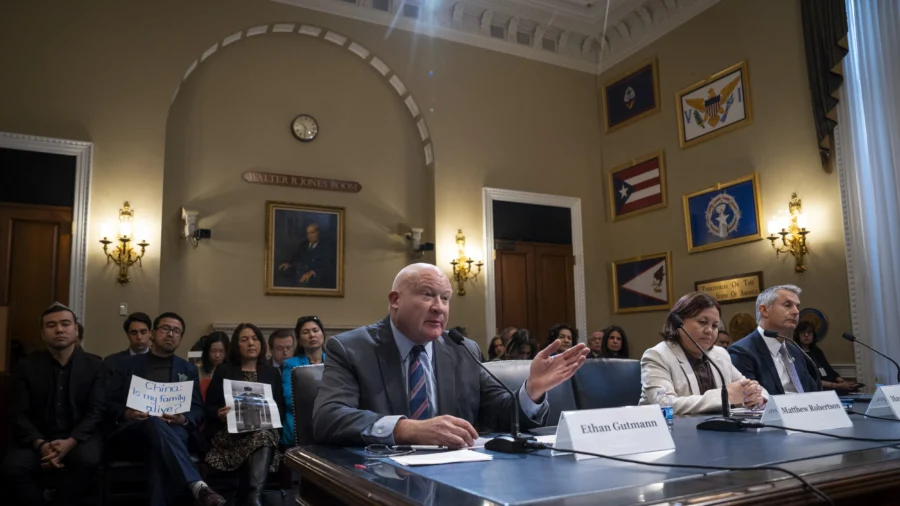WASHINGTON—Researchers are calling for U.S. authorities to curb the flow of Western transplant-related technologies going to China, pointing to the state-sponsored scheme of killing for organs in the country that could expand further with such aid.
Matthew Robertson, a China studies research fellow at the Victims of Communism Memorial Foundation, suggested the measure as among the most forceful set of moves to counter the Chinese Communist Party’s (CCP’s) abuses.
“Authorities can craft export bans on transplant-related technologies and pharmaceuticals, and prevent U.S.-connected businesses from transacting in China’s transplant sector,” he wrote in a written testimony for a congressional hearing titled “Stopping the Crime of Organ Harvesting—What More Must Be Done?”
The Treasury Department could also levy its sanction list to block Chinese medical hospitals engaging in such practices, which are among the “largest and most well-resourced in China,” from doing transactions with any U.S. individuals, according to Mr. Robertson, who previously worked as an editor at this publication.
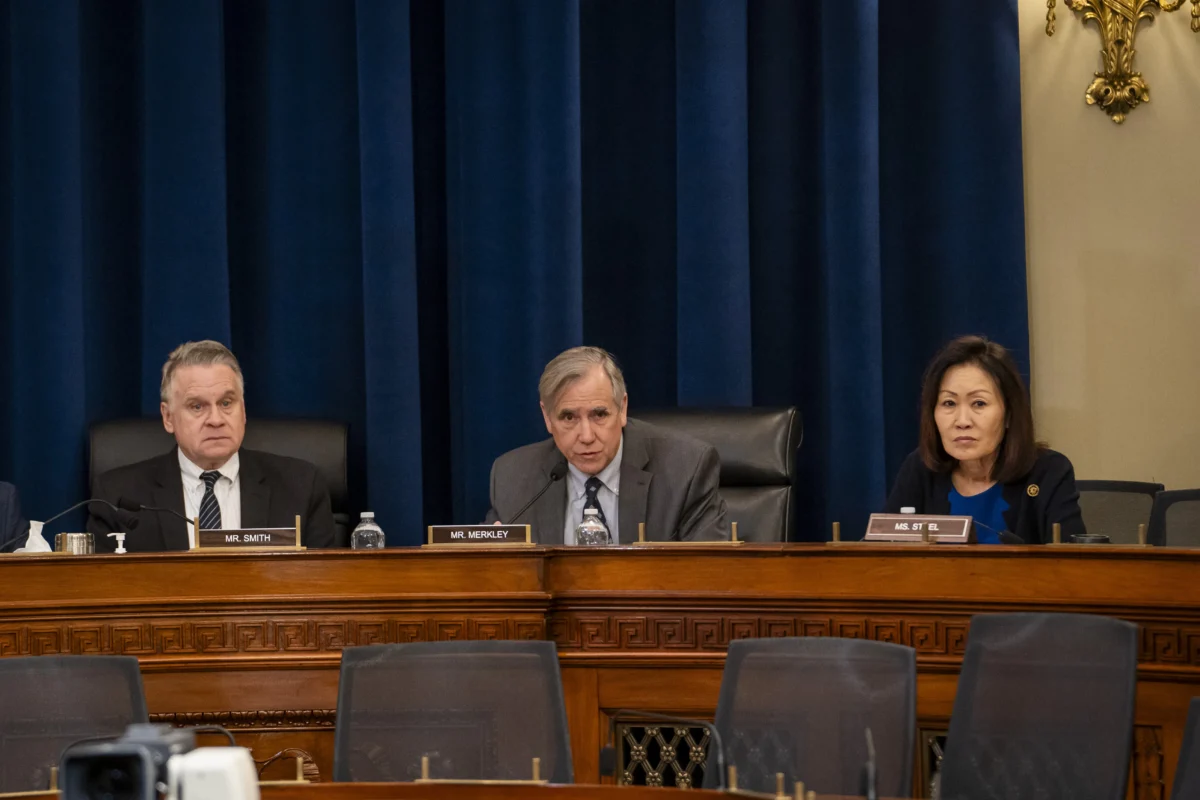
While making these designations would require a major interagency effort, blacklisting thousands of hospitals and surgeons over the abuse would send “an extremely strong signal” about U.S. opposition to the “human trafficking, extrajudicial killing, and organ harvesting,” he said.
Presiding over the hearing on Wednesday, Rep. Chris Smith (R-N.J.), chair of the Congressional-Executive Commission on China (CECC), described the industrial-scale forced organ harvesting in China as “an atrocity unmatched in its wickedness.”
“We all bear some responsibility to act,” he told the audience. “If we don’t act now, many more lives will be lost.”
In 2019, a China tribunal in London concluded that forced organ harvesting has taken place “for years throughout China on a significant scale.” Adherents of Falun Gong, a spiritual discipline harshly persecuted in communist China, have been a chief source of organ supply, according to the tribunal findings.
Rep. Zach Nunn (R-Iowa), at the hearing, professed horror at the brutality of the act.
“I can think of no act more heinous than taking a political prisoner, strapping them to a medical bed, and stealing their body parts from the inside out,” he said in his opening remarks.
“This is happening right now today in the most populous country in the world, and those who have repeatedly been persecuted, the Uyghurs, Falun Gong, and detainees are oftentimes the subject of these heinous crimes, but they are not alone—it’s expansive, and is routine throughout China.”
“The time for the madness, the wholesale slaughter of a population, has to stop, particularly when it’s used under the guise of doing science.”
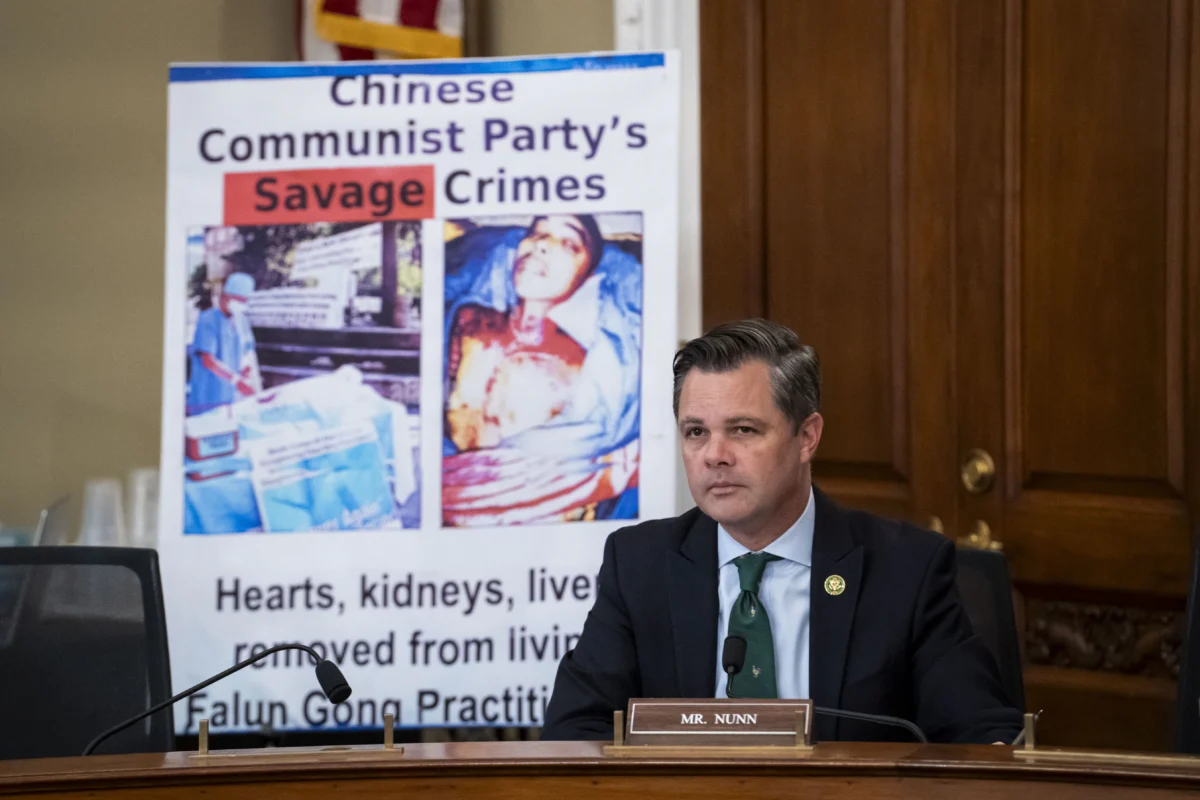
More researchers now express alarm about the spread of the abuse to other suppressed groups.
At the hearing, human rights investigator Ethan Gutmann, who co-founded the International Coalition to End Transplant Abuse in China, said he had interviewed former detainees at detention camps in China’s northwestern region Xinjiang who attest to unexplained blood tests and sudden disappearances of detainees in the middle of the night.
He noted that one hospital in the city of Aksu that performs organ transplants is just about a 20-minute drive to the airport, where an “express channel” has been set up for fast transportation of fresh organs.
Chinese civil aviation authority data from April 2023 shows that such express channels have been used more than 11,000 times nationwide over the six years since their creation.
‘Largest DNA Database’
Maya Mitalipova, director of the human stem cell lab at MIT’s Whitehead Institute for Biomedical Research, said some companies are complicit in China’s crimes of organ harvesting, according to her written testimony. She explained that China uses certain company’s DNA sequence kits to build the world’s “largest DNA database” to easily find matching organs for waiting patients.
Ms. Mitalipova named two companies: U.S. medical equipment maker Thermo Fisher Scientific and China-based BGI Group. In December 2022, Mr. Smith and three other CECC members sent a letter to Thermo Fischer seeking answers about its products. In response, the U.S. medical equipment maker said in a letter that its products were used for “routine forensics investigations” and “police casework and forensics” in China.
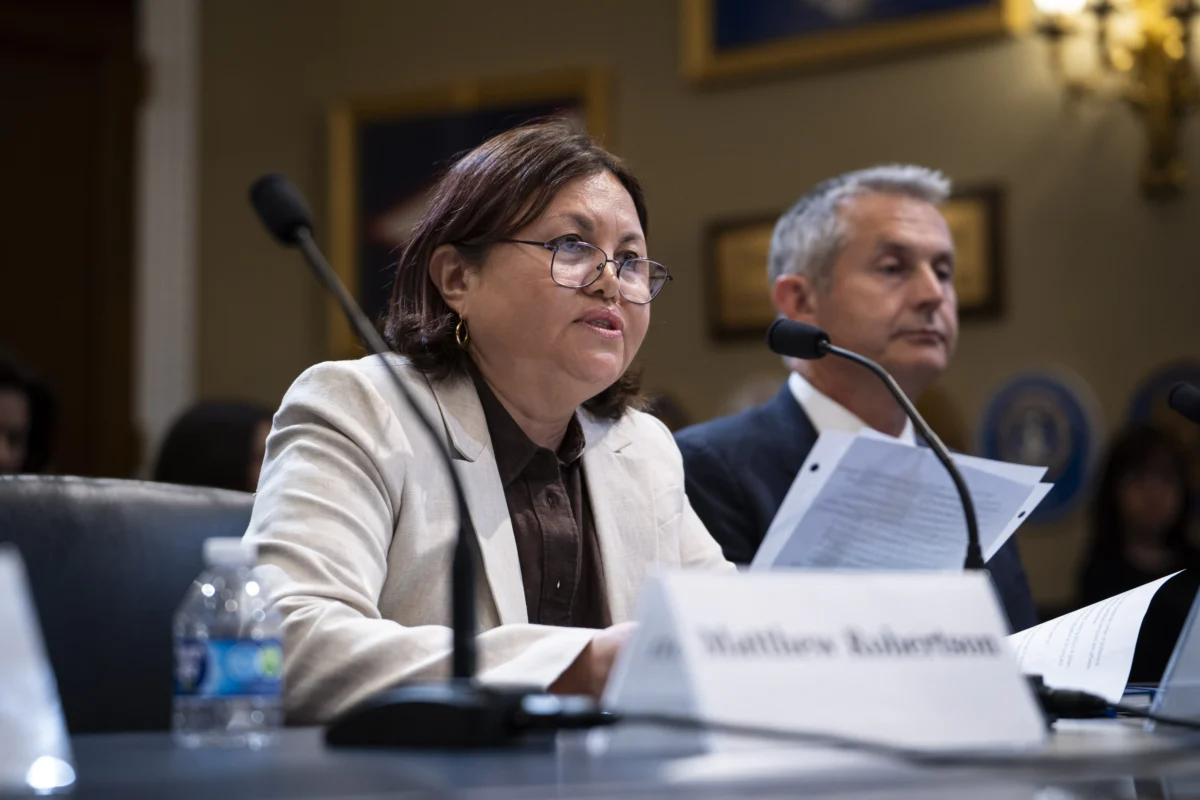
Citing Thermo Fischer’s letter, Mr. Smith and Sen. Jeffrey Merkley (D-Ore.), co-chair of CECC, sent a letter to Secretary of State Antony Blinken, Secretary of Commerce Gina Raimondo, and Secretary of the Treasury Janet Yellen in October 2023. The lawmakers asked for export controls on technology used for mass biometric data collection in Tibet.
“Given there are so few safeguards for how DNA and other sensitive biometric data is gathered and used in the People’s Republic of China (PRC), it is our concern that biometric collection and analysis equipment could enable gross violations of human rights—from coercive mass surveillance to the harvesting of organs,” the two lawmakers wrote.
The Epoch Times has reached out to Thermo Fisher for comment.
The U.S. government has sanctioned several affiliates of BGI Group for conducting genetic analysis for the Chinese regime in recent years. However, the company denied it had been involved in human rights abuses following U.S. sanctions in 2020.
BGI Chief Executive Officer Zhao Lijian told China’s state-run media in 2023 that his firm must carry out its business activities “in line with the country’s national strategies.” In 2021, Reuters reported that its investigation had revealed that BGI Group was working with the Chinese military to harvest data from millions of women through its prenatal tests.
While these companies “should be bound,” Ms. Mitalipova stressed that they are not alone in their complicity.
“Maybe sanctioning Thermo Fisher will teach the lesson, but for sure there should be some regulations,” she told The Epoch Times.
Mr. Robertson urged Congress to investigate Chinese hospitals for complicity, particularly whether they have benefited from federal funding through their cooperation with U.S. institutions.
“Grantee institutions should be asked to account for their level of oversight of potential sub-awardees implicated in these practices,” he added.
In a 2019 study published in the scientific journal BMC Medical Ethics, Mr. Robertson found that China had likely systematically falsified its organ donation data. In a subsequent study published in the American Journal of Transplantation in 2022, he found 71 Chinese-language papers in which doctors had removed hearts and lungs from people for transplants without carrying out a test to establish brain death—indicating that patients were killed during the organ extraction.
Texas, Utah Laws
Texas state Rep. Tom Oliverson also attended the hearing. He was a primary sponsor of Texas legislation SB 1040 that became law on Sept. 1, 2023. The new law bans health insurers in the state from funding organ transplants performed with organs originating from China.
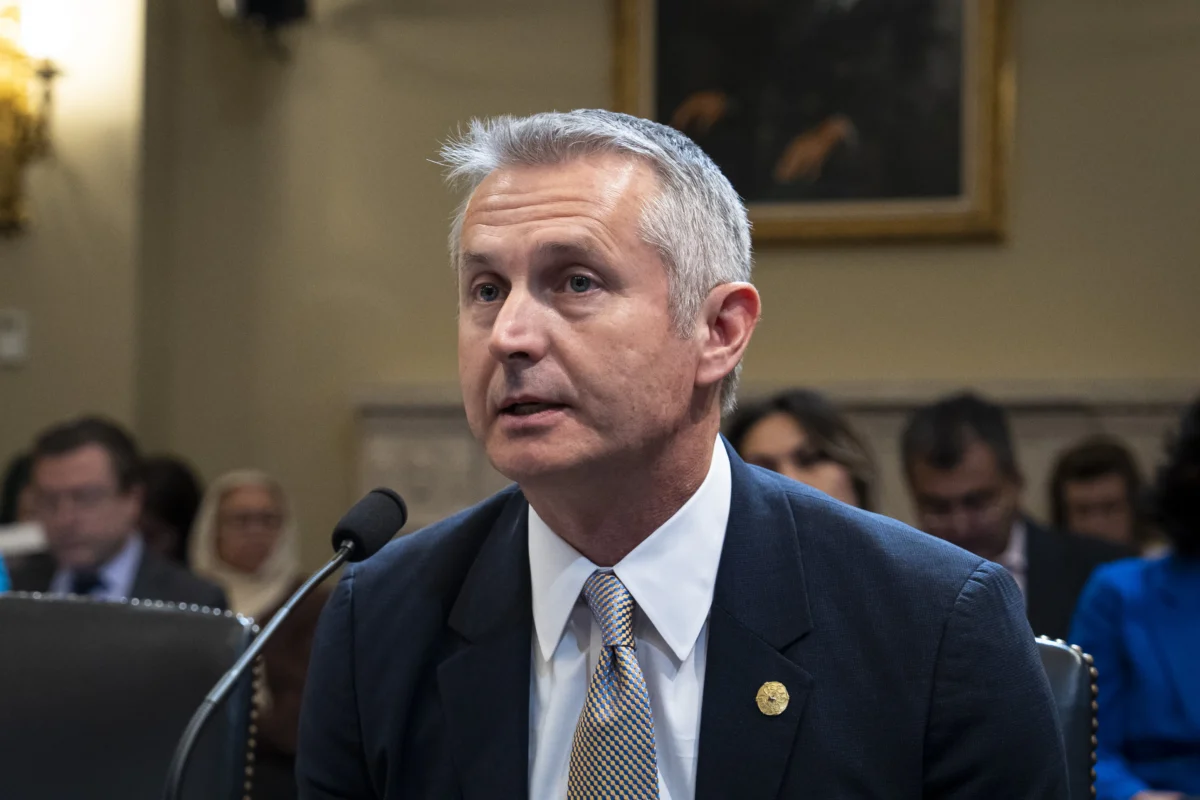
A similar law will come into effect in Utah on May 1, after legislation was passed unanimously in both state chambers and signed by Utah Gov. Spencer Cox on March 14.
Mr. Oliverson said he took pride in seeing the legislation he led being modeled in other states.
“The communist government, whether it’s China or another government, looks at a human being not as an individual with inalienable rights, but as a natural resource,” he said at the hearing. “And so if that can be monetized for the benefit of the collective good, you’re never going to stop that unless you can choke off the demand.”
He said an export ban on U.S. transplant technology to China is “an excellent idea.”
He now plans to look into ways to prevent other forms of U.S. investment into the Chinese medical field, he told The Epoch Times.
He has been thinking of advancing a bill to ban funding of research with “any connection to organ transplantation going on in China.” Texas might also look into possible means to discourage biomedical firms from profiting off the practice, he said.
The U.S. House passed a landmark bill (H.R. 1154) in March last year, which would sanction anyone involved in forced organ harvesting and require annual government reporting on such activities taking place in foreign countries. The Senate version of the legislation (S.761) has not advanced out of the Senate Foreign Relations Committee since it was introduced last year.
Editor’s note: This article has been updated to add more details from the hearing.
From The Epoch Times

